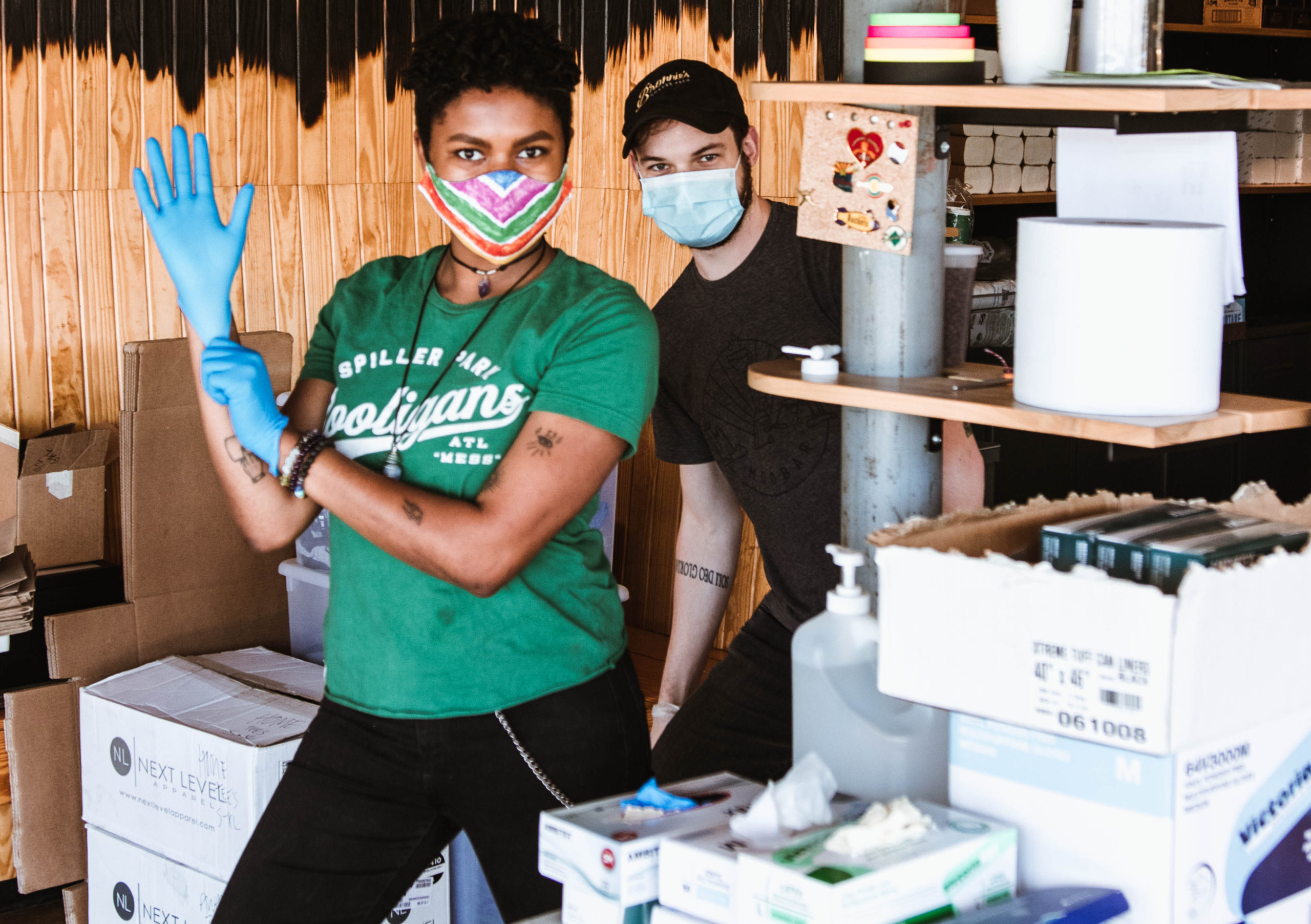
Those operating coffee shops in the United States—a country with very little in the way of viable safety nets for small business—have a big question on their minds this spring. When, and how, will it be safe to reopen amidst the COVID-19 pandemic? From Georgia to San Francisco, from Texas to New York City, all eyes are on the canaries in the coffee coal mine to see what returning to service (and the “new normal”) will look like. Sprudge spoke with a few of these operators to find out how they’ve approached reopening as safely as possible—including those for whom that decision means continuing to wait.
California-based Equator Coffees, which operates eight cafes in the Bay Area and Marin County, initially closed all of its locations on March 16. Since then, they’ve gradually and cautiously reopened most locations for adjusted to-go service. The company learned a number of lessons along the journey, says Director of Retail Tina Malouf. Adjusting to new consumer behavior was one of those.
“We’re not selling a lot of food, so [that’s been] some good learning for us in navigating our ordering systems,” says Malouf, who adds that vendors across nearly all aspects of their business have also been affected, requiring the company to be truly nimble. “Every time we reopen a cafe it takes us a little longer because we have vendors that have to increase their inventory or maybe have to bring back someone they’ve furloughed. Dairy, paper products, bread, towels, cleaning companies—all of those folks have been impacted in one way or another.”
Like many who’ve reopened, or remained open (including their SF neighbors, Ritual) Equator has added a pandemic-specific line of sundries to items available for purchase besides coffee, like eggs, nondairy milks, and even TP.
“We’re also offering our regular milk, gloves, toilet paper… just small things that we carry in our inventory that we can get from our supplier that customers might be having a hard time getting from their grocery store,” said Malouf, who added that hard-to-procure flour and yeast were soon to be added to that list.
As for what service looks like, payment is 100% contactless using the Equator app. (“We absolutely will not take cash,” says Malouf.) Customers place their orders in advance and stand on six-foot-apart tigers (the company’s mascot) painted on the ground while they wait for their orders and receipts to be set out at a central collection point.
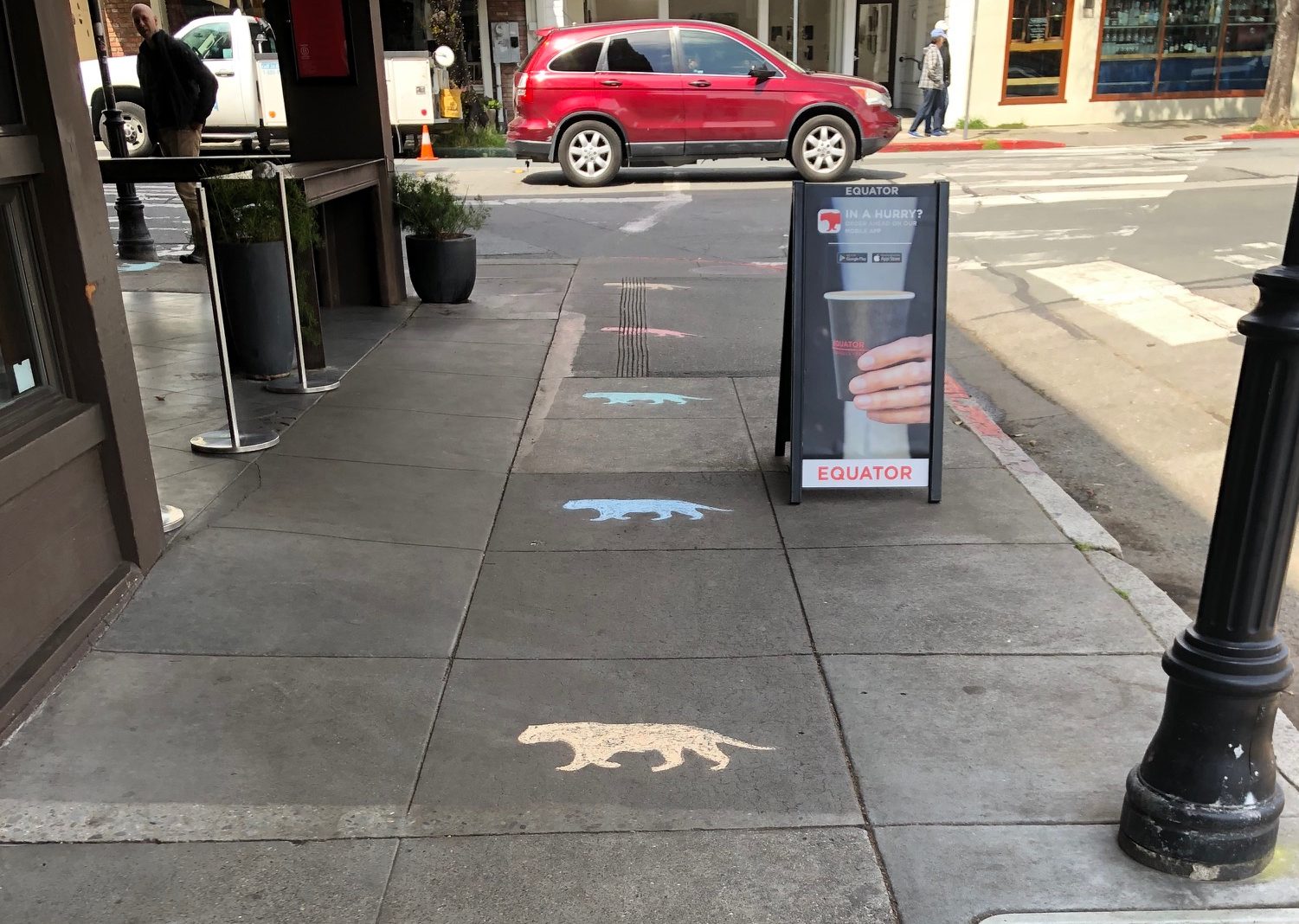
Tiger-shaped distancing markers outside Equator
Other businesses have adopted variations on this theme, like Intelligentsia. Their reopening process began the week of April 27th, with doors open at the brand’s Silver Lake location in Los Angeles, its Broadway location in Chicago, and its Watertown, Mass. cafes with reduced hours and a two-window order-pickup system. (The company’s Austin, Texas location opened again on May 6th.)
Phase One of Intelligentsia’s reopening, describes Vice President of Retail, Lori Haughey, is “Step right up to my window, I’d really appreciate it if you’d order online or through our app, no cash, I’ve got my plexiglass, you are not coming into my coffee bar for any reason.” she laughs. Customers pick up drinks at the next window, and places to wait a safe distance apart are delineated with sidewalk tape. Those who ordered ahead are welcome to directly approach the pickup window and will be handed their coffee. (Haughey says customers prefer this to collecting at a central spot where they don’t know who may have handled the drink.)
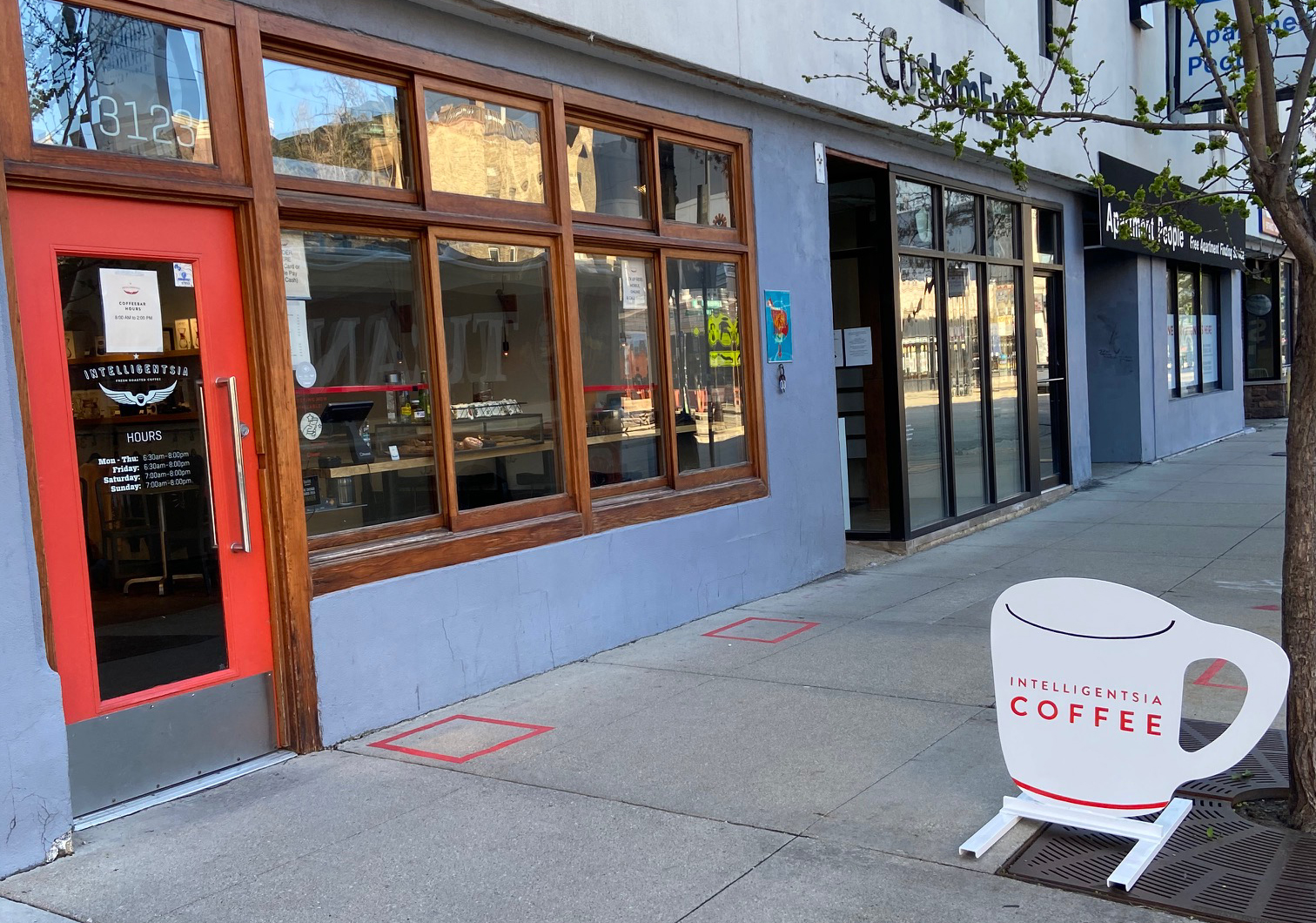
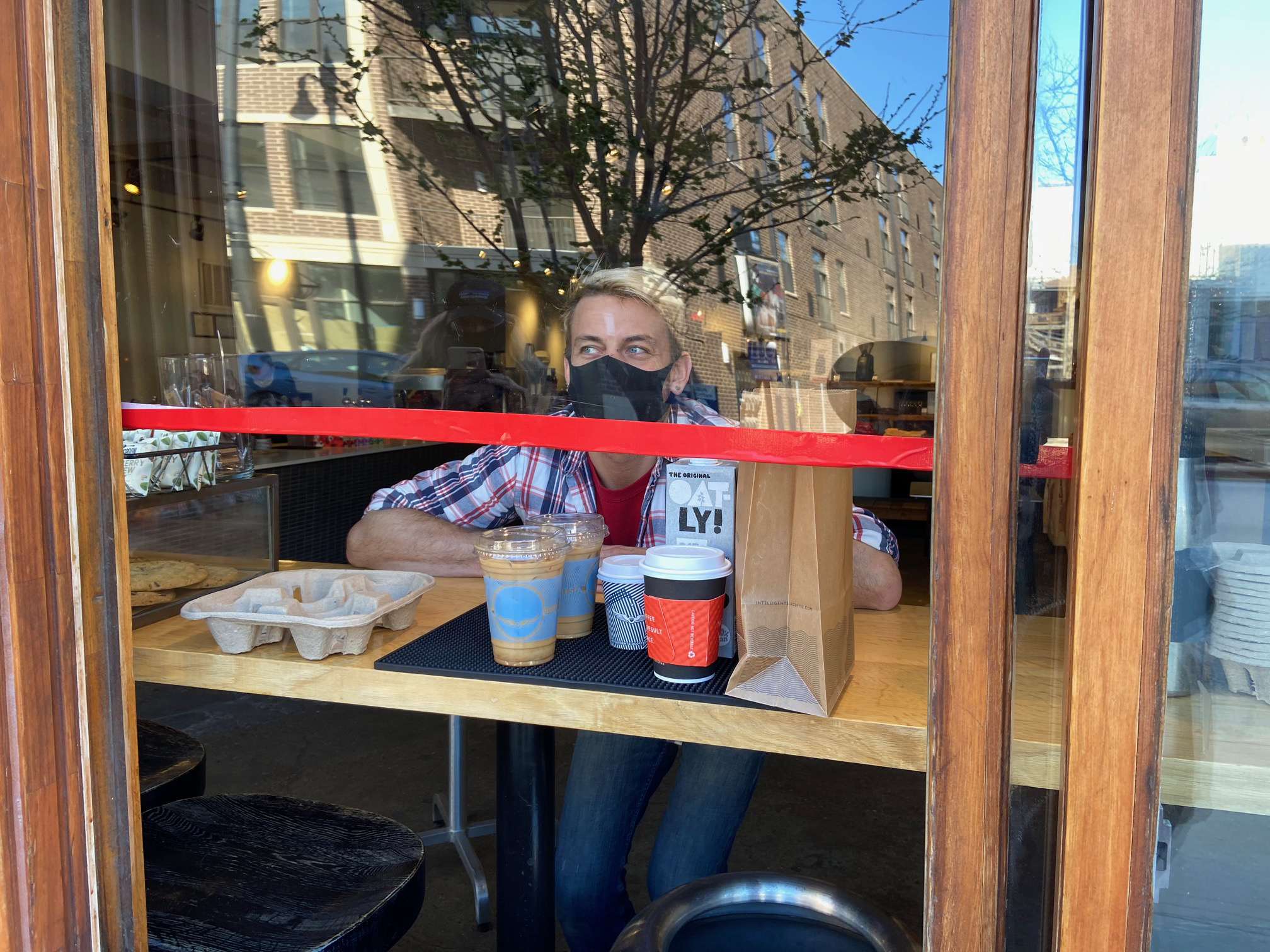
Haughey credits both the larger coffee community and Intelligentsia’s wholesale partners for providing an initial road map towards reestablishing business.
“We were one of the companies that just completely shuttered, unlike quite a few that decided to continue to forge on—I respect the hell out of them and I respect that effort to just survive,” said Haughey. “I feel that we have really been able to learn from many individuals out there that were brave enough to stay open and learn from them what’s right, wrong, what have they learned. So many of our wholesale partners have been instrumental in sharing with us—much of the time we feel like we’re the teacher and they’re the students but right now we’re on the other side of that and they’ve been gracious with their information.”
Malouf, too, emphasizes the importance that businesses can have on the wider community—both in terms of influencing other businesses through their practices, and in terms of the public health.
“I would just say that the amount of responsibility around ensuring that the folks around your environment are socially distancing, you cannot underestimate the power of that, how critical it is. People are watching,” says Malouf. “So to anyone who’s thinking about reopening they need to be prepared for that, and be prepared to tell customers, ‘hey six feet apart please’.”
As far as staffing, both Haughey and Malouf stress that only employees who have been eager to return to work are being tapped to come back. “When we called it was an immediate yes in all cases so far,” said Haughey. “But if somebody says, ‘I’m just not comfortable with it yet,’ we’re very empathetic, we’re going to put you closer to the bottom of the list until this all lifts.”
In other parts of the country, shopowners may be more tentative. In New York City, which has seen the largest COVID-19 infection rate and loss of life in the country, Everyman Espresso co-owner Sam Lewontin says his shops will not reopen anytime soon.
“As far as we can tell, while social distancing measures are having the hoped-for effect, we’re not yet even remotely out of the woods. We’re having regular phone meetings about it, but it’s still very much a waiting game on our end,” says Lewontin.
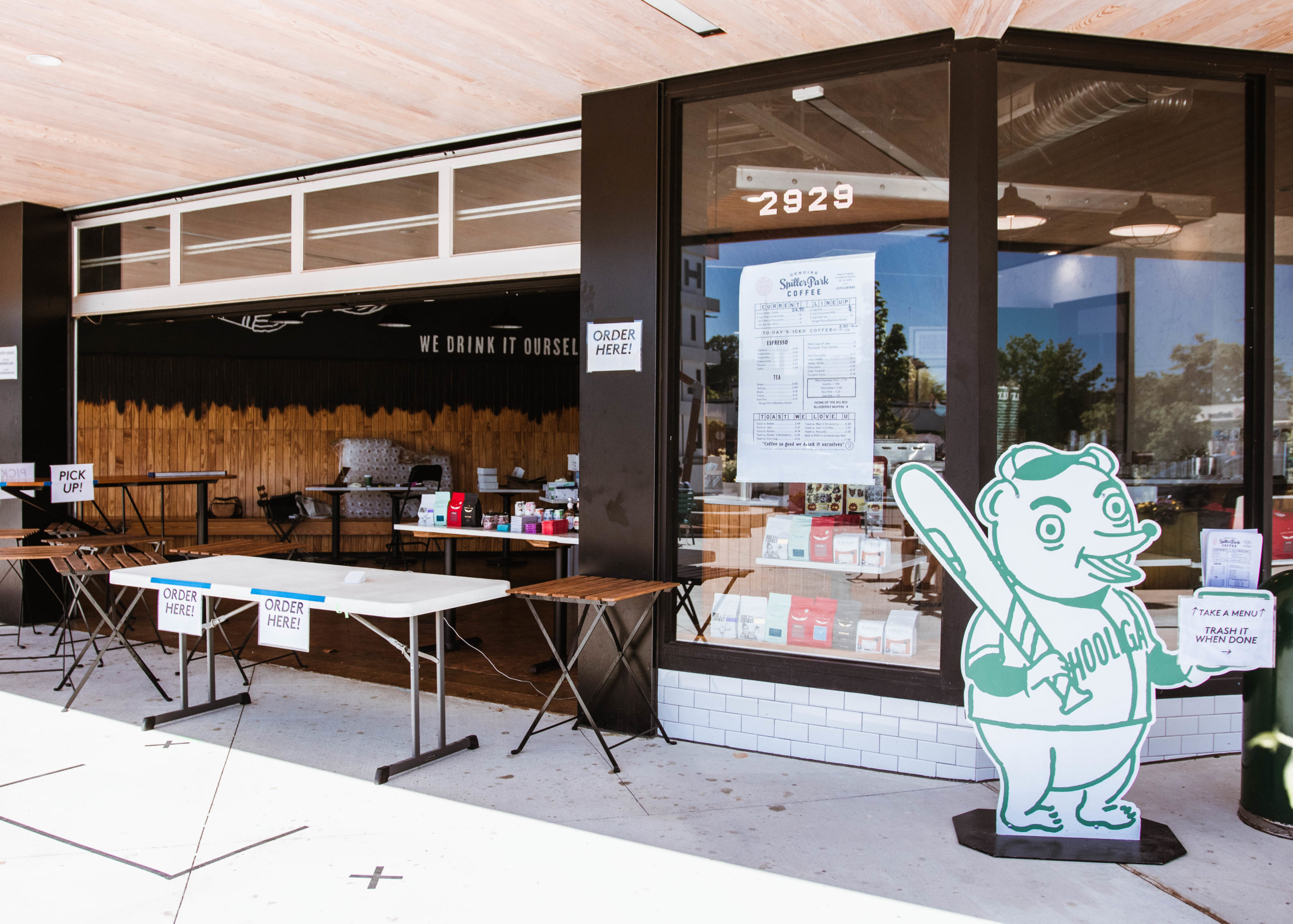
Down South, though Georgia Governor Brian Kemp has allowed the state’s shelter-in-place order to expire, Spiller Park‘s busy Toco Hills location has reopened for curbside only service—but has no schedule to reopen “dine in” coffee service anytime soon, says co-owner Dale Donchey.
“As for a full-on reopen, I’m most likely going to wait til a vaccine is out,” says Donchey, who co-owns the two Spiller Park locations with chef Hugh Acheson. “That time frame might change. But I don’t see our infection rate dropping anytime soon with the state being free to wander this early. I think Kemp has only one box on this checklist and it’s cutting unemployment costs.”
“The good news is that our customers know we want to keep them safely caffeinated, fed, and entertained without being able to sit inside,” says Donchey. “The response has been a joyful one. And it’s kind of fun to offer them a completely reimagined business with new menu items. It’s like opening for the first time after five years,” he adds.
“We’ve all gotten real good at smiling with our eyes, too.”
Liz Clayton is the Associate Editor at Sprudge Media Network. Read more Liz Clayton on Sprudge.
Photos courtesy Intelligentsia Coffee, Equator Coffees, and Spiller Park.

